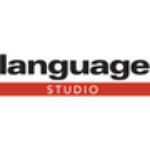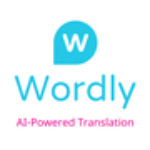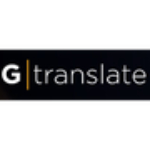TechnologyCounter provides genuine, unbiased real user reviews to help buyers make informed decisions. We may earn a referral fee when you purchase through our links, at no extra cost to you.
List of 15 Best Machine Translation Software
Showing 1 - 15 of 16 productsSYSTRAN is a leading language translation software designed to break down communication barriers and connect people around the world. Backed by decades of expertise and innovative technology, SYSTRAN offers a reliable solution for accurate is a trans...Read SYSTRAN Reviews
Bing Translator the perfect assistant for all your translation needs. Powered by the renowned search engine, Bing, this user-friendly software is your go-to solution for quick and accurate translations in over 60 languages. Say goodbye to language ba...Read Bing Translator Reviews
Yandex Translate is a translation tool that breaks down language barriers with ease. With its advanced technology and user-friendly interface, Yandex Translate allows you to communicate effortlessly in multiple languages. Whether for personal or prof...Read Yandex Translate Reviews
KantanAI is a artificial intelligence software that is transforming the way businesses operate. With its advanced technology and user-friendly interface, KantanAI streamlines processes and enhances productivity. Say goodbye to outdated systems and he...Read KantanAI Reviews
DeepL is a professional translation software that utilizes artificial intelligence to provide accurate and seamless translations in over 100 languages. With its user-friendly interface algorithms, DeepL is quickly becoming a top choice for businesses...Read DeepL Reviews
Language Weaver is a language translation software designed to break down barriers and bridge communication gaps between different languages. With its advanced technology and algorithm, Language Weaver ensures accurate is a translations, revolutioniz...Read Language Weaver Reviews
Language Studio, the ultimate tool for language lovers and learners alike. This innovative software offers a unique is a way to improve your language skills, whether its for personal or professional development. With Language Studio, the possibilitie...Read Language Studio Reviews
Babylon Translator is a Machine Translation Software that caters to the needs of Enterprises, SMEs, and StartUps. It is designed to offer complete solutions for both Web App and Android platforms. This efficient online system provides easy access to...Read Babylon Translator Reviews
Tilde Machine Translation is a tool designed to break down language barriers and facilitate seamless communication. With its advanced technology and user-friendly interface, Tilde Machine Translation offers a reliable is a solution for accurate trans...Read Tilde Machine Translation Reviews
Vidby is a Machine Translation Software created for use by Enterprises, SMEs, and StartUps. With a focus on providing complete solutions for both Web App and Android platforms, Vidby is an all-in-one online system for quick and accurate translation...Read Vidby Reviews
iTranslate is a translation software that breaks down language barriers and connects people all over the world. This innovative tool allows for seamless communication in over 100 languages, making it a must-have for travelers, professionals, and indi...Read iTranslate Reviews
TranslateWith.ai is a translation software that combines the power of artificial intelligence and human expertise to deliver accurate is a translations. With its user-friendly interface technology, TranslateWith.ai is changing the game of language tr...Read TranslateWith.ai Reviews
Wordly is a word processing software that is revolutionizing the way we create and edit documents. This innovative tool boasts a user-friendly interface features that make creating, formatting, and collaborating on documents effortless. Say goodbye t...Read Wordly Reviews
Slate Desktop is a software designed to elevate your translation experience. With its advanced features and user-friendly interface, Slate Desktop enables seamless translation from and into multiple languages. Take your translations to the next level...Read Slate Desktop Reviews
GTranslate is a language translation solution for your business needs. With an extensive range of features and a user-friendly interface, GTranslate makes it easier than ever to reach a global audience. Take your content to new heights with accurate...Read GTranslate Reviews
- What Is Machine Translation Software?
- Top Reasons Why Businesses Need Machine Translation Software?
- What Are the Top Key Features of Machine Translation Software?
- What Are the Top Benefits of Machine Translation Software?
- What Are the Steps to Choose the Right Machine Translation Software?
- What Are the Types of Machine Translation Software for Different Industries?
- What Are the Technology Trends for Best Machine Translation Software?
- What Are the Deployment Options for Machine Translation Software?
What Is Machine Translation Software?
Machine Translation (MT) software is a type of computer software that converts text, speech, and audio from one language to another. It is used to help people who do not speak the same language communicate with one another. Businesses and people who want to translate digital content like as websites, emails, SMS, and social media postings generally utilize MT software.
In the broadest sense, MT software "translates" a source text or audio file into the target language. There are two parts to this process. The first is the input, which can be either text or audio. The output is the text or audio that has been translated into the target language.
Natural language processing (NLP) technology is used by automated translation software to translate input into a machine-readable format. After converting the data, the software applies a set of rules to the input to generate a translation in the target language.
The rules may contain grammar and syntax rules, semantic rules, and other language-specific rules, depending on the software. Machine translation tools can identify sentiment and emotion in text or audio recordings in addition to translating text and voice.
This functionality can be valuable in customer service interactions, for example, by allowing agents to better judge the tone of communication used by a consumer. Overall, the best machine translation software allows people to communicate with one another regardless of linguistic difficulties.
This can be extremely beneficial for organizations that need to connect with consumers in multiple languages, as well as anyone who needs or wants to learn a foreign language.
Top Reasons Why Businesses Need Machine Translation Software?
1. To lower the cost and time required for document translation.
2. Provide multilingual access to websites, apps, online stores, and documents to customers.
3. Increase earnings by expanding worldwide reach.
4. To lower the possibility of human error when interpreting complex documents.
5. To facilitate and accelerate communication among persons who speak different languages.
6. Allowing people to revise machine-generated translations for increased accuracy.
7. Increase client trust by providing correct translations.
8. Assist in the development of research materials for universities and other educational institutions.
9. To translate enormous amounts of text fast and easily for any language pair.
10. To quickly translate the content of products or services into other languages in order to localise them for different locations and markets.
11. To share and advertise things to a global audience via precise translations.
12. To reduce the cost of engaging specialised technical translators.
13. To provide more access to a wider range of online information.
14. To increase brand perception in various cultural circumstances.
15. Using machine translation technology to help enhance the accuracy of human translations.
What Are the Top Key Features of Machine Translation Software?
1. Automated translation: Machine translation software uses complex algorithms and statistical methodologies to translate text rapidly and precisely without the need for human participation.
2. Language recognition: Machine translation software recognizes a text's source language and can automatically choose the best language pair for translation.
3. Natural language processing (NLP): To deliver more accurate translations, these algorithms allow the program to analyze phrase structure, syntactic patterns, and other data.
4. Machine learning: Machine learning techniques are used in advanced machine translation tools to improve translation accuracy and quality.
5. Multilingual support: Best machine translation software can translate many languages at once and provide multilingual functionality.
6. Contextual translation: Contextual analysis is used by online machine translation tools to create more accurate translations that take into consideration the context of the original text.
7. Adaptive and natural language understanding: Advanced top machine translation software can adapt to varied dialects, accents, and settings by exploiting NLP skills, as well as recognizing the intricacies of natural language.
8. Collaborative translation: The best machine translation software can also be used to help numerous users cooperate on translation projects and exchange translations.
What Are the Top Benefits of Machine Translation Software?
1. When compared to manual translation, machine translation software provides faster and more accurate translation services.
2. It is an effective method of localising and internationalising content.
3. It allows organisations to save money and effort when localising.
4. Machine translation reduces the need for repetitive and time-consuming manual translations.
5. It is beneficial for large-scale data translations that are too complex to be done manually.
6. It can be used to easily generate multilingual content versions.
7. As improvements in Natural Language Processing and deep learning technologies are produced, machine translation is getting more accurate and extensive.
8. Because it uses natural language processing techniques, it helps to eliminate human errors associated with manual translations.
9. Machine translation allows for rapid and efficient modifications in several languages.
10. Because of format preservation, machine translation aids in the preservation of the original format and structure of the content.
What Are the Steps to Choose the Right Machine Translation Software?
1. Identify Your Need: It's critical to understand the types of translations you and your team will be conducting before selecting machine translation software. Some software is better suitable for technical or medical translations, whereas others are better suited for general translations.
2. Research Different Platforms: Investigate and compare available machine translation platforms based on functionality, cost, and user feedback. Look for references that are relevant to your requirements.
3. Consider Customization: Many machine translation software packages provide for customization. This improves the translation experience by fine-tuning your settings to the language you're translating.
4. Review Integration Options: If your company already uses specialized software, seek a machine translation program that integrates easily with the tools you're already utilizing.
5. Try a Demo or Free Version: Once you've narrowed down your options, test out a demo or free trial version. Try out the features and evaluate the translation quality.
6. Compare Prices: Compare the costs of the various automated translation software options you've considered. Examine the price and what you get for the money you'll be paying.
7. Finalize Your Decision: If there is a clear winner after testing alternative machine translation tools, make your pick. Choose the programme that best matches your requirements while remaining within your budget.
What Are the Types of Machine Translation Software for Different Industries?
Various forms of machine translation software can be used in various industries. The available software is determined by the type of project or industry, as well as the scale of the project. Machine translation software is classified into three types: rule-based, statistical-based, and neural-based.
To translate input text, a rule-based machine translation system employs a set of established rules. This type of system is often utilized for tiny, limited-scope projects or jobs with well-defined and predictable input text structures. Statistical top machine translation software generates translations from enormous, pre-existing databases of linguistic data.
Because it relies on machine learning algorithms to generate translations, this sort of software is well-suited to larger projects with larger amounts of text. Natural language processing techniques are used by neural-based the best machine translation software to process text input and generate translations.
This software is quite sophisticated and is best suited for larger-scale tasks including complex text patterns, many languages, and massive data sets.
What Are the Technology Trends for Best Machine Translation Software?
The technology for machine translation software is developing rapidly, with more advanced and accurate systems becoming available. Some of the current trends in the best machine translation software include:
1. Automated Neural Machine Translation (NMT): This technology is based on deep learning algorithms and takes advantage of machine learning systems' ability to learn from massive amounts of data. It outperforms typical machine translation algorithms in terms of performance because it can translate larger chunks of text at a time and can greatly enhance speeds.
2. Rules-based Machine Translation (RBMT): Traditional machine translation approaches, such as RBMT, continue to have a place in machine translation technology because they can create higher-quality translations than fully automated systems. To accurately translate between languages, RBMT algorithms employ enormous sets of rules and dictionaries.
3. Customization Options: Many top machine translation software programs provide various customization options, such as lexical options, manual editing, and translation result post-editing.
4. Integration with Online Resources and APIs: The capacity to link machine translation technologies with internet resources and APIs has become a critical trend for developers. This kind of integration allows users to use translation tools from within their own applications and can be used to automate operations like content creation and language localization.
What Are the Deployment Options for Machine Translation Software?
The deployment possibilities for machine translation software are determined by the software being utilized. The best machine translation tools can be deployed on-premise, in the cloud, or as a hybrid system.
On-premise implementation necessitates installing and maintaining the software on a company's local server, whereas cloud-based deployment allows organizations to use the program via an internet connection, typically paying a subscription fee for usage under a pay-as-you-go model.
Hybrid solutions include elements of on-premise and cloud installations, allowing businesses to build their own approach to top machine translation software.















